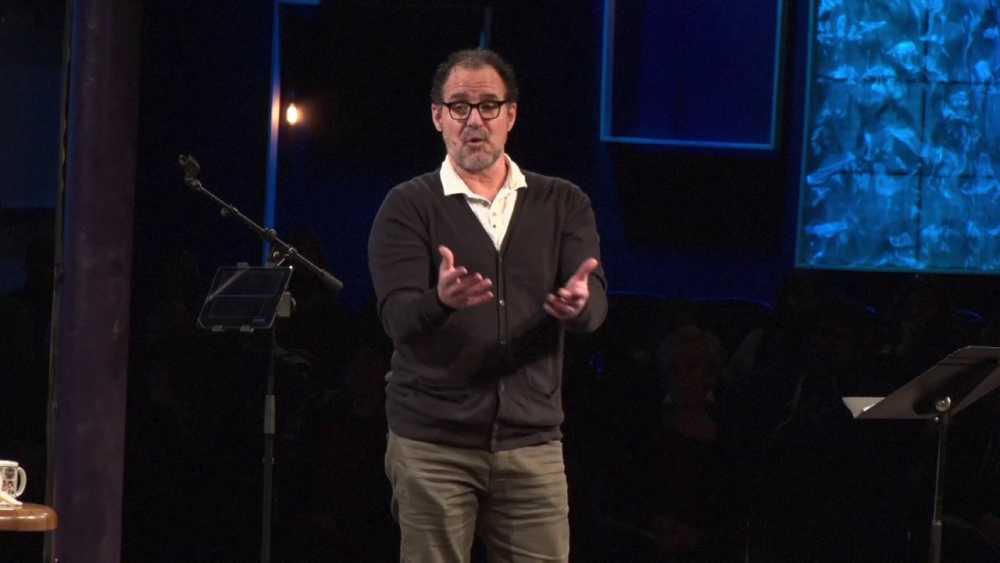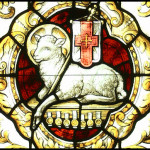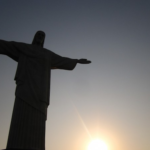We run our website the way we wished the whole internet worked: we provide high quality original content with no ads. We are funded solely by your direct support. Please consider supporting this project.

Myth Become History
The Gospel of John tells of the coming of Jesus in an unusual way. John writes:
In the beginning the Word already existed. The Word was with God, and the Word was God. Everything came into existence through him. Not one thing that exists was made without him. He was the source of life, and that life was the light for humanity. The real light, which shines on everyone, was coming into the world… The Word became human and lived among us. We saw his glory. It was the glory that the Father shares with his only Son, a glory full of kindness and truth. —John 1:1-5; 9
Jesus is the eternal one who has been with the Father since the beginning. He is not merely a human who was born into history; he is actually the “source of life” and the glory of God. In this sermon clip, Greg connects the story of Jesus’ birth with the deep longings, the inner yearnings of our heart, for something that is greater than this world. He illustrates this by demonstrating that the great legends and myths from a variety of cultures point to Jesus. While today we often equate myths with something that is not true, in fact they often tap into very deep realities. J.R.R. Tolkien and C.S. Lewis, two experts on mythology and on Christianity, spoke of the coming of Christ as the myth that became history. Christ became the very thing the greatest mythological stories have pointed to.
If you are interested in the entire sermon, it can be viewed here.
Category: Sermons and Video Clips
Tags: Christmas, Jesus, Myth
Related Reading

The Phinehas vs. Jesus Conundrum
I’ll be frank. This is not a blog that will be easy for some people to read. But it’s a blog I believe every follower of Jesus should read – even if you have to force yourself to press on. It’s about something we all wish was not true. It’s about the way the Bible…

God’s Kind of Holy War
This is part three of a series on Revelation. You can find part one here and part two here. While there will come a day when the sacrificial victory of the Lamb and of his people will be apparent to all (5:13; 15:4; 21: 23-4), only to those who embrace the perspective of the heavenly…

That Weird Episode with the Pigs
In my opinion, the single strangest episode recounted in the Gospels is the account of Jesus’ encounter with a demonized man that ended with two thousand pigs drowning themselves in the Sea of Galilee (Mk 5:1-10//Mt 8:28-34; Lk 8:26-39). Some find it morally objectionable that this mass suicide was the result of Jesus allowing the…

Reflections on the Supremacy of Christ (Part 2)
Whereas most Christians place the revelation of God in Christ alongside of other portraits of God and end up with an amalgamated image of God, we at ReKnew encourage believers to base their understanding of God completely on Christ, and especially on Christ crucified. And we encourage disciples to work to reinterpret through the lens…

Reflections on Divine Violence in the Old Testament
As some of you know, for the last five years I’ve been working on a book addressing the problem of divine violence in the OT. (For alleged violence in the NT, see Thomas R. Yoder Neufeld, Killing Enmity: Violence in the New Testament (Baker Academic, 2011). It will be a highly academic tome, approximately 600…

Seeing and Knowing God
There are many scripture passages that seem to suggest that the way people view God often says more about them than it does about God. Our perception of God, as well as other spiritual truths, is conditioned by the state of our heart. Jesus’ most important teaching on this matter is found in John’s Gospel…
